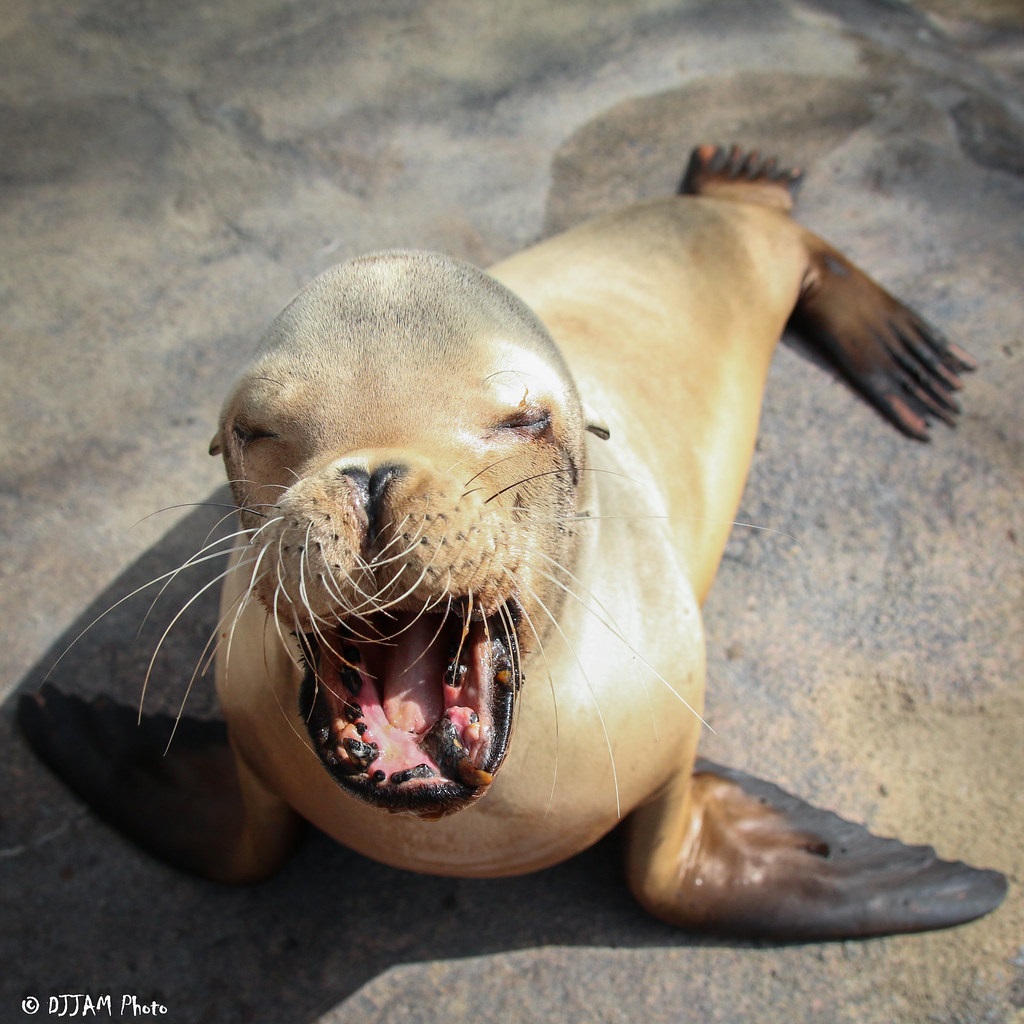Cincinnati Zoo Mourns Loss of Beloved California Sea Lion “Duke”
 CINCINNATI, OH (April 18, 2019) – The Cincinnati Zoo & Botanical Garden’s beloved California sea lion Duke, a favorite of many guests and employees, passed away earlier today. At almost 31 years of age, he was one of the oldest of his kind in any Zoo in North America. The median life expectancy for this species is 23.
CINCINNATI, OH (April 18, 2019) – The Cincinnati Zoo & Botanical Garden’s beloved California sea lion Duke, a favorite of many guests and employees, passed away earlier today. At almost 31 years of age, he was one of the oldest of his kind in any Zoo in North America. The median life expectancy for this species is 23.
“Duke was slowing down but could easily find his way around his habitat and participated in training and play activities with his care team,” said Senior Keeper Lisa Potter. “In recent months, his behavior and demeanor changed, and his appetite decreased. He just wasn’t the same old Duke.”
Duke’s care team, which included five veterinary staff members, a nutritionist, and five marine mammal specialists, had been monitoring his health and doing everything possible to keep him comfortable.
 “He was special…so laid back, smart and sweet. He was a great ambassador and enjoyed interacting with visitors and his caregivers,” said Potter. “I always knew this would be hard but still wasn’t prepared to lose him. We will miss him so much.”
“He was special…so laid back, smart and sweet. He was a great ambassador and enjoyed interacting with visitors and his caregivers,” said Potter. “I always knew this would be hard but still wasn’t prepared to lose him. We will miss him so much.”
Animals in zoos tend to live longer than their counterparts would in the wild, where there is no such thing as senior care. Duke’s longevity is a testament to the exceptional care, including a special senior diet, regular vet checks and TLC, he received at the Cincinnati Zoo.
 “Our top priority for geriatric animals is maintaining the highest quality of life until the end of life. We feel that we accomplished this with Duke, with a highly capable and passionate group of staff dedicated to giving Duke all that he needed to feel comfortable and happy while he was with us,” said Cincinnati Zoo Director Thane Maynard.
“Our top priority for geriatric animals is maintaining the highest quality of life until the end of life. We feel that we accomplished this with Duke, with a highly capable and passionate group of staff dedicated to giving Duke all that he needed to feel comfortable and happy while he was with us,” said Cincinnati Zoo Director Thane Maynard.
Arthritis, high blood pressure, vision and cardiac issues are as common in older animals as they are in human seniors. As a result, the Zoo’s hospital is stocked with anti-inflammatories, diuretics and beta blockers. Cincinnati Zoo’s animal care staff does everything possible to make our animals comfortable in their golden years, including providing special diets, habitat modifications and specialized medical attention.

